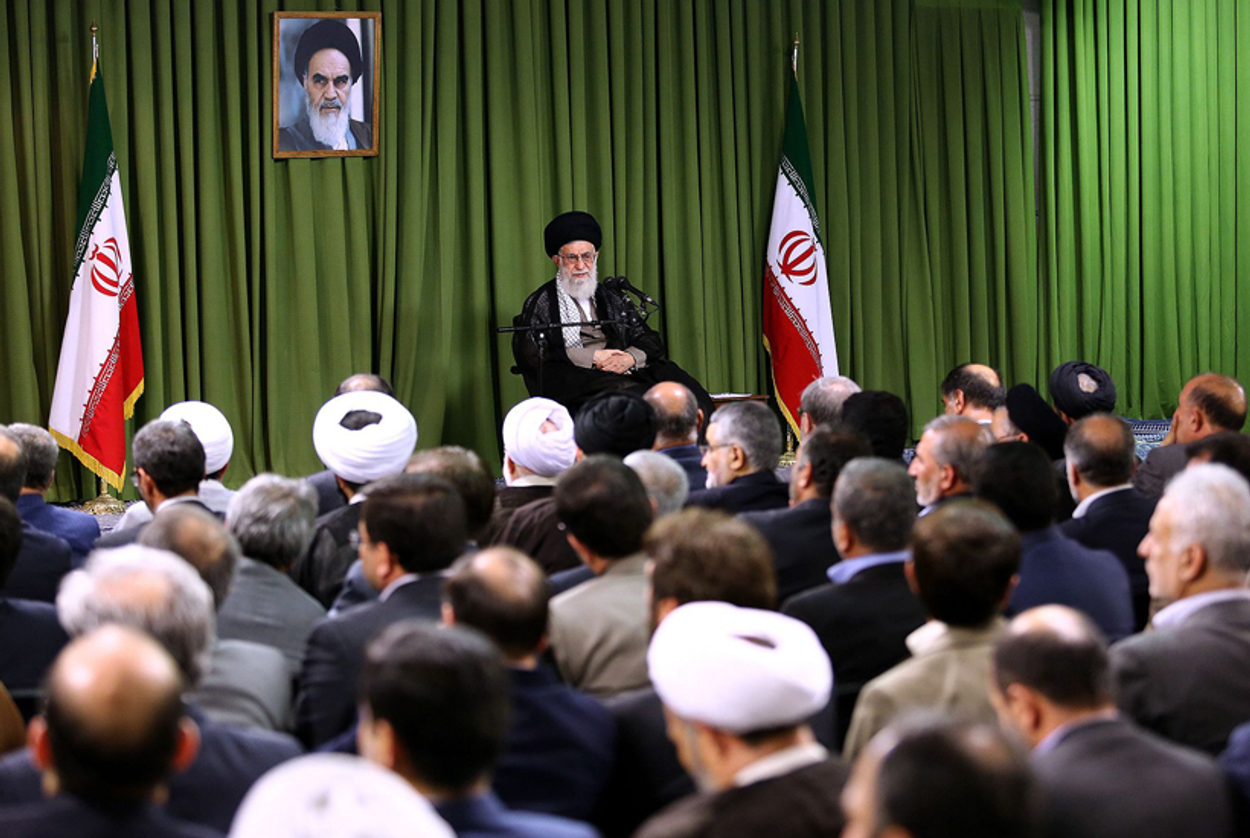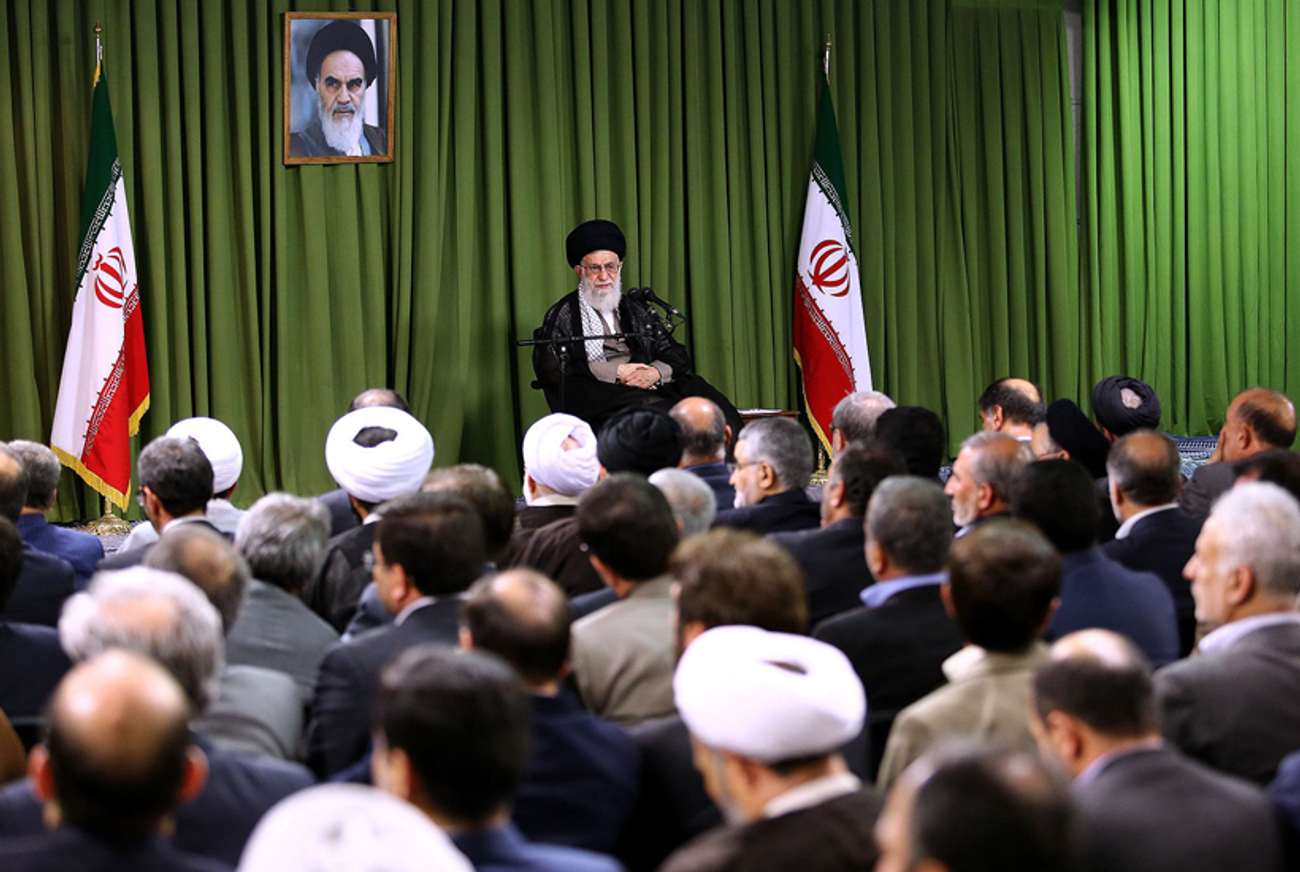In Iran Dealings, the Fantasy of a Grand Bargain Persists—but It’s Actually Just a Bad Deal
The Obama Administration’s plans to exit the region are a gift to the regime in Tehran, nuclear deal or no




Last week, Senate Democrats called off a vote on a bill that would have, among other things, relaxed visa requirements for Israelis after Republican Sen. Bob Corker of Tennessee tried to add an amendment demanding a congressional say in any final nuclear deal with Iran. The bill’s sponsor, California Sen. Barbara Boxer, was clear about why she withdrew the legislation: “I pulled it down because of the Iran amendment.”
But amid signs that the administration may be moving toward a final agreement when the Joint Plan of Action comes up for renewal July 20, even former Obama officials—most notably Dennis Ross and Ray Takeyh—are calling for congressional buy-in. “Notwithstanding partisan difficulties, seeking congressional endorsement is essential lest any agreement rest on a shaky foundation and be difficult to implement,” they wrote in the Washington Post, a few days after Boxer made her comments.
But the real concern isn’t that a deal on the nuclear program will fall apart because of partisan squabbling in Washington. It’s the prospect of a comprehensive agreement tackling a host of regional issues in ways that will come at the expense of American interests. In other words, what should worry both the administration’s allies and its critics is that we’re moving toward a so-called “grand bargain” with Iran, with the United States getting the short end of the stick.
***
As readers may recall, the idea of a “grand bargain”—an agreement that would in theory end decades of enmity between the United States and Iran—can be traced back to a memo reportedly faxed from Tehran to the State Department in 2003. The document laid out the terms of a prospective deal and what each side could expect. For instance: Iran would stop supporting terrorist groups like Hezbollah, Hamas, and Islamic Jihad, while the United States would cease all efforts at regime change and drop sanctions.
Proponents of the grand bargain narrative, like former National Security Council staffers Flynt Leverett and his wife Hillary Mann Leverett, contend that neoconservative hardliners in the Bush White House ignored the initiative. For a while, the Leveretts became media stars who were welcomed on the Daily Show and elsewhere as truth-tellers who stepped forward to expose the warmongering George W. Bush Administration from the inside. With the United States fighting two wars in Muslim countries, Bush’s failure to seek historical reconciliation with the Islamic Republic amounted to what Times columnist Nicholas Kristof, a prominent cheerleader of the grand bargain theory, called “diplomatic mismanagement of the highest order.”
Bush Administration officials say the grand bargain fax was nothing but a red herring, conceived either by a freelancing Swiss ambassador to Iran—who represents American interests in Tehran—alone, or in tandem with the Leveretts. “It is inconceivable that if there was such a serious initiative that it wouldn’t have come to the national security council, or secretary of state,” Bush’s former Deputy National Security Adviser Elliott Abrams told me recently. “The whole thing is absurd.” Indeed, the notion that the Iranians ever put a serious offer on the table has been thoroughly debunked, even by some who were once true believers, including the Washington Post’s Glenn Kessler.
However, the dream of the grand bargain persists, because the terms laid out in the 2003 document, whatever its actual provenance, have become the de facto guideposts for the Obama White House’s Iran policy—not just regarding the nuclear weapons program, but Iran’s regional project as a whole.
While the P5+1 negotiations in Geneva have become a political football in Washington and get the lion’s share of global media attention, Iran is moving on several fronts throughout the region, most notably in Syria. The Syrian civil war has further expanded Iran’s reach across the Middle East. Tehran’s efforts on behalf of Bashar al-Assad have put not only IRGC troops in Syria but also Iranian-backed forces from around the region. Indeed, among the most important developments to come out of Syria is that Iran has dispatched militias there from third countries—notably Lebanon and Iraq, as well as Afghanistan. In other words, Iran has employed the same model it used with Hezbollah in Lebanon and seeded other creeping vines elsewhere to advance its interests throughout the region.
Instead of pushing back against Iranian expansionism, the White House has essentially assisted Iran and its allies. First, President Barack Obama has refused to arm the anti-Assad rebels while the administration has repeatedly insisted that in Syria the major strategic threat to U.S. interests came not from Iran and its allies, but from certain Sunni extremist groups. To be sure, the White House is right to be worried about non-state actors like the Islamic State in Iraq and Syria—but the truth is that these jihadist groups are small potatoes compared to an Iran with strategic resources, like its armed forces, and particularly compared to an Iran with a nuclear weapons program.
“The White House’s policy in Syria has helped create this argument that we are or should be pursuing policies parallel to those of Iran and Hezbollah,” noted Abrams. “We have a common enemy in Sunni jihadists, the argument goes, and hence we have common interests, and hence we should be cooperating.”
In practice, that means the people this White House is cooperating with are the Iranian resistance bloc. In Lebanon, the U.S. intelligence community has teamed up with the Lebanese Armed Forces’ military intelligence, essentially now a subset of Hezbollah, to fight Sunni extremists. In Iraq, the administration has dispatched arms to Prime Minister Nuri al-Maliki, another Iranian asset who is allied with groups that have killed American soldiers, like Asaib Ahl a-Haq, to support his counter-insurgency against Sunni fighters. This isn’t how it was supposed to be. In the framework of the grand bargain, one of the benefits the United States was supposed to reap was Iran’s agreement to desist from supporting terrorism. Instead, not only do the Iranians continue to back terrorist groups, but the White House is all but helping them do so.
For all the mythical nonsense surrounding the origins and significance of the grand bargain, it still would have been a much better deal for the United States than the one the White House has implicitly acquiesced to. To see how badly the Obama Administration is getting played, it’s worth looking at some of the other terms laid out in the grand bargain memo. Compare it to how the White House has kept up its end of the bargain, in spades, while getting nothing in return:
The grand bargain was a fantasy, but one grounded in the strategic reality of what is now a bygone era—a period in American history that also seems festooned in the cobwebs of ancient legend. It used to be that U.S. policymakers believed the Persian Gulf was part of our postwar legacy, a strategically vital body of water that we protected in order to ensure the free flow of affordable energy that allowed America to buy and trade the goods that made it a superpower. Under these conditions, Washington was prepared as the regional hegemon to cut deals with lesser actors, even revolutionary regimes it might be able to draw back into the community of nations, while America’s continued presence in the region assured our allies that nothing would touch them on our watch.
But that’s not how Obama seems to see it. America is packing up and leaving, and there’s no time left for a grand bargain. What we’re watching instead is just a fire sale, as the world’s one superpower abandons its holdings to an obscurantist third-world soon-to-be-nuclear state sponsor of terror.
***
Like this article? Sign up for our Daily Digest to get Tablet Magazine’s new content in your inbox each morning.
Lee Smith is the author of The Consequences of Syria.
Lee Smith is the author of The Permanent Coup: How Enemies Foreign and Domestic Targeted the American President (2020).